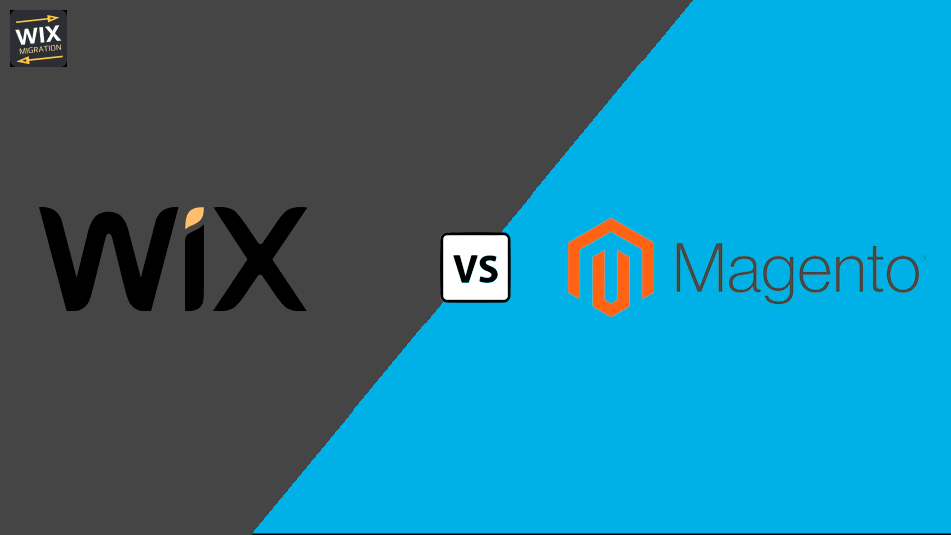When it comes to building an eCommerce website, choosing the right platform is crucial for the success of your online business. Magento and Wix are two popular options that offer different features and functionalities. In this comprehensive guide, we will compare Magento and Wix to help you make an informed decision.

Comparing Magento and Wix: A Comprehensive Analysis
| Feature | Magento | Wix |
| Target Audience | Medium to large enterprises | Small businesses, individuals |
| Ease of Use | Complex, requires technical expertise | User-friendly, drag-and-drop interface |
| Customization | Highly customizable | Limited customization |
| Hosting | Self-hosted or cloud hosting options | Hosted by Wix |
| Cost | Higher, with hosting and development | Lower, with various pricing plans |
| Themes and Templates | Extensive range of premium themes | Numerous free and premium templates |
| Extensions and Plugins | Thousands of extensions available | App Market with many options |
| SEO Capabilities | Advanced SEO features | Good SEO tools |
| Payment Gateways | Supports multiple payment gateways | Supports major payment methods |
| Scalability | Highly scalable for large businesses | Limited scalability for large growth |
| Support | Community support, some professional | 24/7 customer support |
| Security | Requires manual setup, very secure | Built-in security features |
| Multilingual Support | Full multilingual support | Limited multilingual capabilities |
| Performance | Can be highly optimized | Generally good performance |
| Maintenance | Requires regular maintenance | Wix handles maintenance |
Magento vs Wix: Uncovering the Contrasts
User-Friendliness Compared
When it comes to user-friendliness, Magento and Wix present distinct differences. While Magento offers extensive customization options, it requires technical expertise to set up and manage. The learning curve can be steep for beginners who are not familiar with coding. On the other hand, Wix is designed to be user-friendly and intuitive, making it accessible to users with no technical background.
If you have limited technical knowledge and prefer a straightforward website creation process, Wix may be the better option for you. Its user-friendly interface and drag-and-drop editor allow you to easily build and customize your website. However, if you require advanced customization and have the resources to invest in development, Magento offers greater flexibility and control over your online store.
But let's dive deeper into the features of these two platforms and see how they compare.
Feature Showdown: Magento vs Wix
When it comes to features, Magento outshines Wix due to its extensive capabilities. With Magento, you can create complex product variations, manage multiple stores with ease, and integrate with various payment gateways. Additionally, Magento offers more advanced marketing and SEO features to help drive traffic and boost sales.
Wix, on the other hand, provides basic eCommerce features such as product listings, inventory management, and built-in payment processors. While these features are suitable for small to medium-sized businesses, they may not meet the requirements of larger and more complex online stores.
So, if you're looking for a platform that offers a wide range of features and advanced capabilities, Magento might be the right choice for you. However, if simplicity and ease of use are your top priorities, Wix could be the better option.
Design Options: Magento vs Wix
When it comes to design options, both Magento and Wix offer different approaches. Magento offers a wide range of design options through its extensive theme marketplace and customization capabilities. You can choose from a variety of free and premium themes or hire a developer to create a unique design for your online store.

Wix, on the other hand, offers a collection of visually appealing templates that are easy to customize using its drag-and-drop editor. While the design options are more limited compared to Magento, Wix provides a straightforward way to create a professional-looking online store without technical skills.
Whether you prefer the flexibility and customization options of Magento or the simplicity and ease of use of Wix, both platforms offer ways to create visually appealing and unique online stores.
Integrating Payments and Shipping: Magento vs Wix
When it comes to integrating payments and shipping, both Magento and Wix provide solutions to meet your business needs. Magento provides extensive options for integrating payment gateways and shipping providers. It supports a wide range of payment methods and allows you to configure shipping methods based on your business requirements. Additionally, Magento offers advanced shipping rules and tax calculations to streamline the checkout process.
Wix, on the other hand, offers built-in payment processors such as Wix Payments and allows integration with popular payment gateways. It also provides shipping options and the ability to set up shipping rates based on location and weight.
Whether you choose Magento or Wix, you can rest assured that both platforms offer robust solutions for handling payments and shipping, ensuring a smooth and seamless experience for your customers.
Extending Functionality: Magento vs Wix
Magento:
- Open-source nature allows for limitless possibilities.
- Thousands of extensions available in the Magento marketplace.
- Ability to develop custom solutions to meet specific requirements.
Wix:
- More limited range of extensions compared to Magento.
- Additional features can be added through the Wix App Market.
- Simplicity and ease of use make it suitable for businesses not requiring complex customizations.
In summary:
- Magento offers extensive customization and the ability to tailor your online store to your exact needs.
- Wix provides a more straightforward approach and is suitable for businesses that don't require advanced customizations.
Breaking Down the Pricing Models
When it comes to pricing, Magento and Wix offer different models to suit different business needs. Magento offers both a free Community Edition and a paid Enterprise Edition. The Enterprise Edition is more suitable for larger businesses that require advanced features and support. However, note that implementing and maintaining a Magento store may involve additional costs for hosting, development, and extensions.
Wix, on the other hand, offers various pricing plans, including a free plan with limited features. The premium plans provide additional eCommerce functionalities and allow you to connect your custom domain. While Wix may have lower upfront costs compared to Magento, consider your long-term needs and the potential limitations of the platform.
Ultimately, the choice between Magento and Wix depends on your specific requirements, budget, and technical expertise. Both platforms have their strengths and weaknesses, so it's important to carefully evaluate your needs before making a decision.
Magento vs Wix: The Verdict on the Best Platform
When delving into the world of eCommerce platforms, the decision between Magento and Wix can significantly impact the success of your online store. Magento, known for its robust features and extensive customization options, caters well to businesses with complex needs and a desire for scalability. With its open-source nature, Magento allows for deep customization and integration possibilities, making it a powerhouse for large enterprises and businesses with unique requirements.
On the other hand, Wix appeals to small to medium-sized businesses seeking a hassle-free, intuitive platform for building their online presence. With Wix, users can enjoy a drag-and-drop interface, pre-designed templates, and a quick setup process that requires minimal technical expertise. This user-friendly approach makes Wix an attractive option for entrepreneurs looking to establish an online store swiftly and efficiently.
Before making your choice between Magento and Wix, it's crucial to assess various factors such as your technical proficiency, budget constraints, and long-term business objectives. By carefully evaluating the features, design capabilities, flexibility, and pricing structures of both platforms, you can make an informed decision that aligns with the unique needs of your eCommerce venture.






